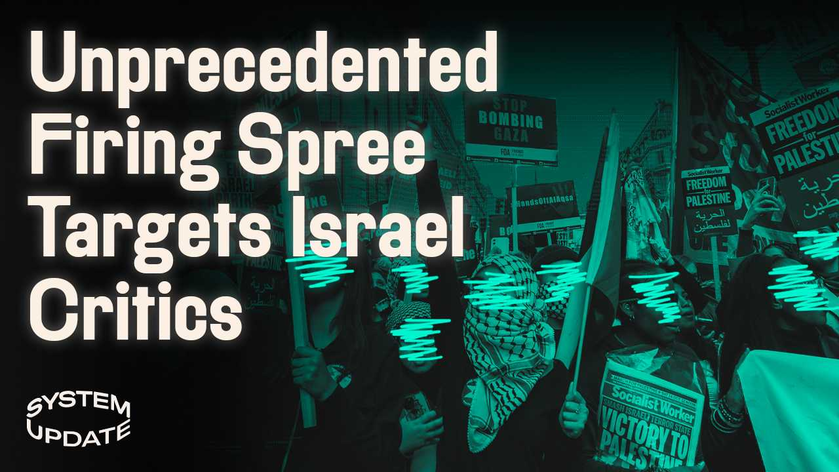Watch the full episode here:

Good evening. It's Tuesday, October 24.
Tonight: in May 2016, the Hillary Clinton campaign released its first campaign ad, complete with sinister music, shadowy images and a deep baritone voice full of innuendo, explicitly stating that Donald Trump harbored disloyalty and a secret allegiance to Moscow. I assumed wrongly, as it turns out, that most Americans would recoil from such a familiar and discredited script, copied as it so obviously was from the most extreme witch hunts that came to define them toward the notorious McCarthy era.
The same thing happened when Russia invaded Ukraine, and I assumed that Americans would instantly recognize that they were being subjected to the same template of war propaganda that has induced them to support so many wars over the last several decades. Moralizing fairy tales about how the U.S. is merely a benevolent power, which yet again is involving itself in a war for purely selfless reasons, simply attempting to defend democracy from the dark, malevolent forces of despotism. This was the same script that induced Americans to support the invasion of Iraq. War advocates in the media insisted that the U.S. fights wars to spread democracy, even as our government openly funds and arms the world's most repressive tyrants from Saudi Arabia to Egypt, which meant I assumed that Americans would not fall this time for the same primitive and tawdry propaganda.
The reason I was wrong in both instances with my expectations is that I overestimated the extent to which we remember and take with us lessons from history. The raw, visceral and intense emotions that are triggered by every new war are no match for rationality-based attempts to point out that we are being subjected to the same exact scripts, often verbatim, often authored by the very same people who were selling those wars then and who are selling the wars now. And I continue to be amazed, genuinely, at the extent to which the repressive and dissent-crushing climate of 2002 prevails now in the United States with regard to this new war in Israel and the attempt to ensure that the U.S. treats this war – this war of a foreign country – as our own. In many ways, the space for dissent and the tolerance for questions in the wake of the October 7 attack in Israel, on a foreign country, is even more rigid and more constrained than it was after the 2001 attack on our own country.
Then: over the past two weeks, so many Americans have been fired or suffered other reprisals for views expressed on social media that run counter to the prevailing orthodoxies and by that, I don't even mean people fired for expressing support for Hamas, which, by the way, is protected speech, but rather people who were criticizing the Israeli government or its military response in Gaza and Joe Biden's support for it. Anyone watching what is happening would, as intended, be instinctively afraid to express any dissent for fear that they will have their head next on the pike. The 2001 mimicking rhetoric and rationale invoked to justify what Israel is doing and to ensure that our own government is as involved as possible in Israel's war is coming so fast and furious that it is almost impossible to keep up. But given what is at stake in this new and horrifically brutal and very dangerous new war, we're going to try.
When you gather in one place, how many Americans have had their lives turned upside down and gotten fired for expressing dissent or liking posts on social media? How similar are the arguments spewed by the more unified than ever political and media class and those raising objections or expressing dissent? It is genuinely astonishing.
For now, welcome to a new episode of System Update, starting right now.






















